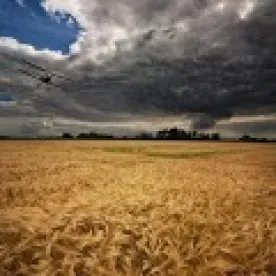Broadening the application of right to farm laws designed to protect farmers and their suppliers from certain claims, a Pennsylvania court found that defendants’ land application of biosolids did not constitute a nuisance under state law. Gilbert v. Synagro Techs., No. 2008-SU-3249-01 (Pa. D. & C. Dec. 28, 2012), available at www.bdlaw.com/assets/attachments/Gilbert.pdf. Granting summary judgment to defendants, who were represented by Beveridge & Diamond, the court held that the use of biosolids as a fertilizer was a protected farming activity under the Pennsylvania Right to Farm Act’s statute of repose, and stated that use of biosolids is not significantly different from other organic fertilizers that farmers have traditionally used. Gilbert, slip op. at 19-20, 33.
The plaintiffs, 37 property owners in York County, Pennsylvania, alleged that land application of biosolids (treated sewage sludge) to farm land near their homes constituted a nuisance, a trespass and caused personal injuries. Id. at 1-3. Defendants moved to dismiss all of plaintiffs’ claims as barred by the State’s Right to Farm Act and that plaintiffs failed to establish the necessary elements of their tort claims. Id. at 4.
The court concluded that plaintiffs’ claims were time-barred under the Right to Farm Act’s statute of repose because the use of biosolids was a protected farming activity. Id. at 20. The court dismissed the negligence claims because plaintiffs could not prove that the land applier, farmer and land owner owed a legal duty to the neighbors regarding off-site odors. Id. at 28. The court also rejected plaintiffs’ claims that odors from biosolids could be a trespass. Id. at 32.
The decision establishes important authority in support of the position that right to farm laws, adopted in most states, have broad application to many farm activities and may shield farmers and their suppliers from tort suits in various circumstances.





 />i
/>i

